Searching for the best Chinese movies to watch? Look no further. I’ve compiled the most comprehensive list of MUST-WATCH Chinese movies. The list is created by reference to the most prestigious Chinese movie review and rating website, Douban Movie.
Douban Movie is the most reputative and authoritative rating website in China and I have written an article to explain why Douban Movie is the Chinese iMDB equivalent. Here is the link: Chinese IMDb Equivalent for Chinese Movie Fans, feel free to check it.
Chinese Movie plays an important role in the film industry and has been growing fast in the past few years. More and more people around the world start paying attention to it and are willing to know more about it. Whether you’re a professional movie reviewer or just an ordinary movie fan, I’m sure the 18 Chinese movies listed below will hugely help.
- Farewell My concubine (霸王别姬)
- A Chinese Odyssey Part Two – Cinderella (大话西游之大圣娶亲)
- Infernal Affairs (无间道)
- Lifetimes (活着)
- Devils on the Doorstep (鬼子来了)
- Let The Bullets Fly (让子弹飞)
- Happy Together (春光乍泄)
- Dying to Survive (我不是药神)
- In the Heart of the Sun (阳光灿烂的日子)
- King of Comedy (喜剧之王)
- Chungking Express (重庆森林)
- The Eagle Shooting Hero (东成西就)
- Comrades: Almost a Love Story (甜蜜蜜)
- A Chinese Ghost Story (倩女幽魂)
- Flirting Scholar (唐伯虎点秋香)
- Echoes of the Rainbow (岁月神偷)
- A Better Tomorrow (英雄本色)
- The Wedding Banquet (喜宴)
- The Reddit discussions center around the topic of the best Chinese movies of all time
Farewell My concubine (霸王别姬)
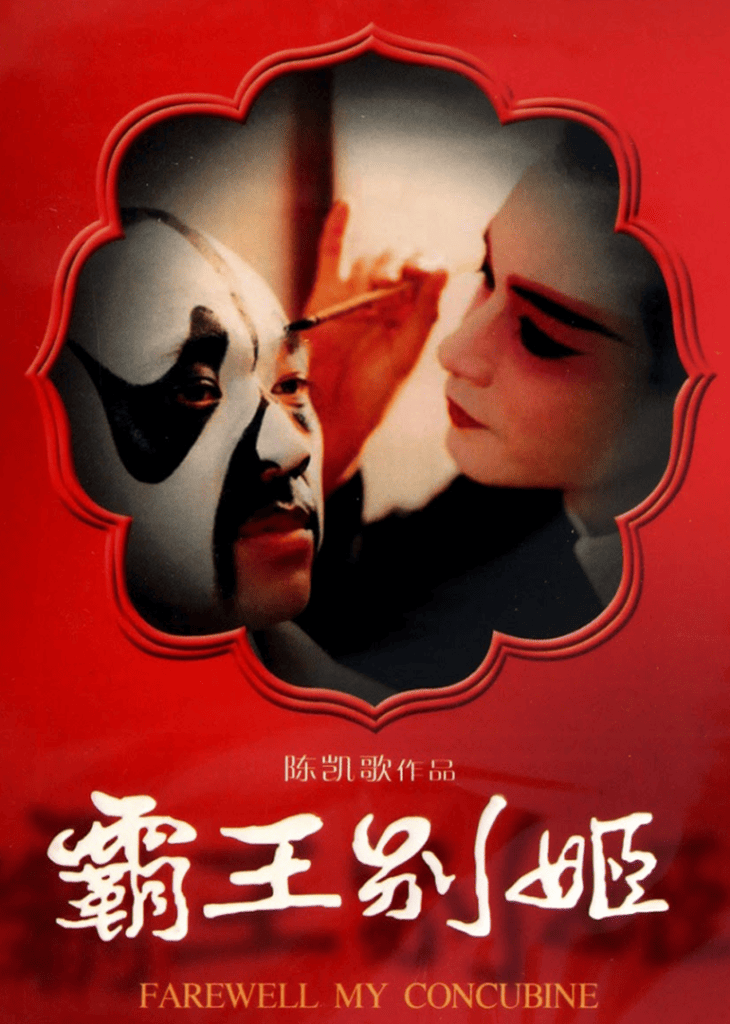
Director: Kaige Chen
Main Actors / Actresses: Leslie Cheung, Fengyi Zhang, Li Gong, You Ge
Why you should watch: A 1993 Chinese drama produced by the Fifth-Generation movement, the story of Farewell My Concubine is based on the book of the same name by Hong Kong novelist Lilian Lee. Given the conditions under which the movie was made, the most amazing part is the expression of freedom energy.
The story is almost unbelievably ambitious, telling an epic homosexual love story between two young men, which was creating a huge controversy in China at the time, but also made a lot of young Chinese become more open mind through watching this movie.
A Chinese Odyssey Part Two – Cinderella (大话西游之大圣娶亲)

Director: Jeffrey Lau
Main Actors / Actresses: Stephen Chow, Man Tat Ng, Athena Chu
Why you should watch: This one is special. At the very beginning, it was not supposed to become a comprehensive love-type movie but just a regular comedy. However, the overall storyline is surprisingly full of a tragic and romantic feel, especially those script writing which have already become classic in Chinese movie history.
Also, the choreography of this movie is very typically New Wave at the time, with many sweeping camera motions and acrobatic swordplay, giving the combat a much more mystical edge.
Infernal Affairs (无间道)

Director: Andrew Lau, Alan Mak
Main Actors / Actresses: Andy Lau, Tony Chui-Wei Leung, Anthony Chau-Sang Wong, Eric Tsang
Why you should watch: this is absolutely a milestone for Hong Kong movies! Hong Kong’s police films have become a typical type of film. In the many years of Hong Kong movie development, traditional police films are full of banditry and righteousness, but good and evil are often inseparable in the battle between good and evil.
This trend was brought up by Infernal Affairs. As the hope of Hong Kong movies at the time, this film was so successful that both Japan and US remade it. Internal Affairs has become a generation of Hong Kong film classics.
Even though the plot just tells the story of the undercover and traitor, the story of the undercover is full of moral dilemmas and confliction, which finally can only be solved by Buddhist ideas.
Lifetimes (活着)

Director: Yimou Zhang,
Main Actors / Actresses: You Ge, Li Gong, Wu Jiang, Ben Niu, Tao Guo
Directed by one of the all-time great Chinese directs, Zhang Yimou, the movie Lifetimes is an extremely meaningful Chinese film, being full of tragic “Violence Aesthetics”.
The film tells the story of Xu Fugui’s life. It feels like a speech about the life of an old man who has gone through all the vicissitudes of the world and suffered. It’s also a drama about the suffering of life. Xu Fugui is up and down in the history of great changes, they can’t control his own destiny at all, and misfortune and frustrations always haunt him.
However, Xu Fugui never gave up the belief in living, never complained about nature and the people, and gave infinite hope for life and the future.
Devils on the Doorstep (鬼子来了)

Director: Wen Jiang
Main Actors / Actresses: Wen Jiang, Teruyuki Kagawa, Ding Yuan, Hongbo Jiang
Let The Bullets Fly (让子弹飞)
Devils on the Doorstep is a black-and-white movie. According to Jiang Wen, the director of this movie, the color itself is the content. The movie has many global lens features, such as many close-up shots, no large-scale motion shots, many hand-held photography shots, and so on.
At first, it seems to be an absurd black humor drama. After a careful taste, we found the deep truth in it. China’s Anti-Japanese war movies have numerous classics, but nothing more than two words: Hero!
But we can’t see the hero and justice in Devils on the Doorstep! What we see is to survive. For ordinary people, the most urgent thing in war is not to overthrow evil with justice, not to be fearless, but how to survive!
Director: Wen Jiang
Main Actors / Actresses: Wen Jiang, You Ge, Yun-Fat Chow, Carina Lau
Let The Bullets Fly is Jiang Wen’s groundbreaking work in recent years. This movie is full of free idealism and “reactionary” metaphor, relying on compact and exquisite lines and a seemingly chaotic and illogical rhythm. From this film, you can feel the unique humorous wisdom of the Chinese and how to use this humor to draw a simple but comprehensive truth.
As we all know that there is a very strict film examination rule in China, so, at least for me, it’s certainly an exciting thing to see such an open and comprehensive movie as Let The Bullets Fly appearing in China market.
Happy Together (春光乍泄)

Director: Kar Wai Wong
Main Actors / Actresses: Leslie Cheung, Tony Chiu-Wai Leung, Chen Chang
If the characteristics of literary language are embodied in words, and the characteristics of dance language are embodied in body modeling, then the characteristics of film and language are embodied in a montage of the unity of the picture.
Hong Kong director Wong Kar Wai’s 1997 work “the light of spring bursts” is not only a representative of the film language expression. This film, which was amazing in the world at Cannes Film Festival in France, has achieved a natural harmony in narration, splicing, light and shadow, and music, and has a very unified and long verve.
Usually, it’s hard for love movies to impress me, but if you ask me which one is my favorite movie, I will tell you the love movie called Happy Together. It’s not only my favorite movie of Wong Kar Wai but also the favorite movie of all movies.
Dying to Survive (我不是药神)
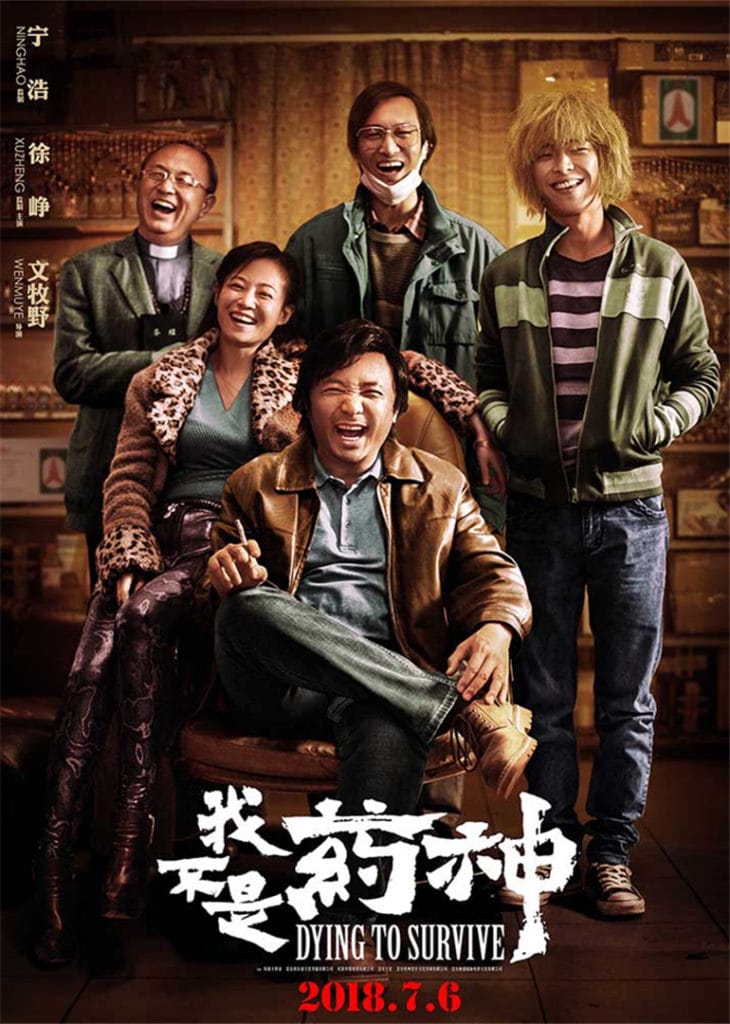
Director: Muye Wen
Main Actors / Actresses: Zheng Xu, Chuanjun Wang, Yiwei Zhou, Zhuo Tan
Dying to Survive is a 2018 film and was phenomenal at the time, creating more than 3 billion RMB box office. It is not a realistic movie but a popular drama based on a realistic theme, taking into account both commercialization and narrative. The director, Muye Wen, knows the general preferences of the domestic audience very well, and the principle of creation is to move closer to popular entertainment.
But generally speaking, the film is very good. It breaks the rules and is a relatively wonderful film without affectation. It’s more about learning from Korean commercial films and real themes to shoot China’s own problems.
In the Heart of the Sun (阳光灿烂的日子)

Director: Wen Jiang
Main Actors / Actresses: Yu Xia, Jing Ning, Hong Tao, Le Geng
In 1994, Jiang Wen’s director’s debut, In the Heart of the Sun, tells the story of a boy who grew up in Beijing in the 1970s. The plot revolves around the emotional foundation of adolescence: deliberately expressing oneself, throbbing, pursuing girls, celebrating freedom, and a series of anecdotes interspersed randomly.
This is a movie about memory. Let people recall those old stories that actually happened. It’s also a man’s memory of his youth when he was a boy.
King of Comedy (喜剧之王)

Director: Stephen Chow, Lik-Chi Lee
Main Actors / Actresses: Stephen Chow, Cecilia Cheung, Karen Mok, Man Tat Ng
Stephen Chow, the director of the film King of Comedy, once said, “I thought I made a lot of tragedies, but people always think it’s a comedy.”
I have to say King of Comedy is this kind of film. Some people say this film was a comedy when they’re children, but now they think it’s a tragedy.
The story of King of Comedy is talking about a little man. Although his life is tough, he is optimistic and believes that he can be a good actor, owning his own persistence and his own idea, which is simple but very touching.
What you have to know about is that King of Comedy is a Hong Kong film and most Chinese can’t speak or understand Cantonese at the time. However, this film was still affecting a lot of Chinese people, which becomes one of the most memorable Hong Kong movies for Chinese.
Chungking Express (重庆森林)
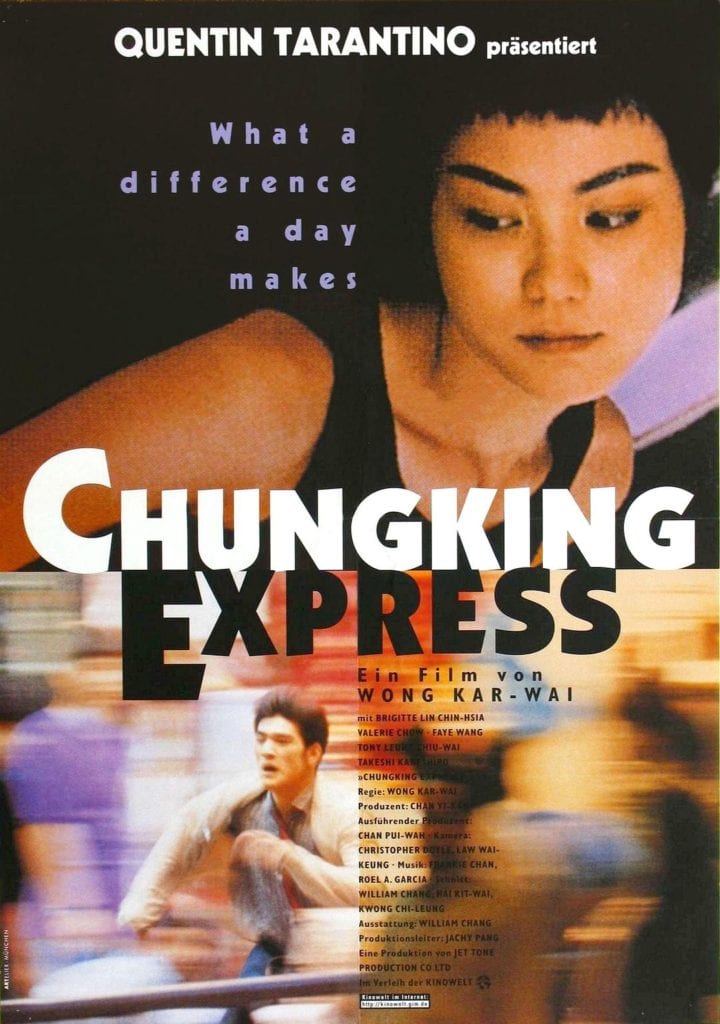
Director: Kar Wai Wong
Main Actors / Actresses: Brigitte Lin, Takeshi Kaneshiro, Tony Chiu-Wai Leung, Faye Wong
Chungking Express, as one of the classic works directed by Kar Wai Wong, has been recognized by numerous movie viewers and received numerous official awards.
The film narrates two subtle events in urban life, outlines the subtle relationship between human feelings in modern cities, and presents a restless alienation and ambiguity as a whole. Unique photography skills and an excellent soundtrack make the film a unique style and have a strong personality and aesthetic trend of the director.
Generally speaking, Chungking Express is a movie with a strong personal style. Some people may complain that it’s boring and meaningless, but it’s undeniable that the director created the bewildering melancholy and ambiguity of the modern city through the stylization of film images and the ingenuity of detail processing. The alienation and hesitation of expressed people’s minds appropriately aroused the audience’s resonance from the senses.
The Eagle Shooting Hero (东成西就)

Director: Jeffrey Lau
Main Actors / Actresses: Tony Chiu-Wai Leung, Brigitte Lin, Leslie Cheung, Veronica Yip, Jacky Cheung
It’s a classic Hong Kong comedy film released in 1993, directed by Jeffrey Lau. The characters in the film are all from Mr. Louis Cha’s biography, heroes of archery. This film is gathering many Hong Kong superstars and combining the advantages of comedies, martial arts films, and action films, which makes it an unshakable position in the same type of films.
The Eagle Shooting Hero is an extremely funny movie. The plot itself doesn’t matter because Jeffrey Lau’s wild imagination makes many plots really make people laugh. I’m sure you can have lots of fun with this film.
Comrades: Almost a Love Story (甜蜜蜜)

Director: Peter Chan
Main Actors / Actresses: Leon Lai, Maggie Cheung, Kristy Yang, Eric Tsang
The title of the film is like a love movie, but the plot is cruel and sweet, talking about two young people who came to Hong Kong to seek dreams finally fell in love, and were facing various realistic problems. This film can make viewers feel a distinctive life experience. For some, it’s sweet, but for some, it’s bitter.
The Hong Kong actress, Maggie Cheung, was showing an excellent performance in this movie. She well expressed the character, Li Qiao, in her language, body, eyes, and head. Her skill was so natural that you still can feel the strong emotional transmission from the character.
A Chinese Ghost Story (倩女幽魂)

Director: Siu-Tung Ching
Main Actors / Actresses: Leslie Cheung, Joey Wong, Wu Ma, Lau Siu Ming
Sometimes, things don’t change over time and the film A Chinese Ghost Story is one of them. After more than 30 years, it is still impossible to replace the dream poetry of this film. The depiction of turbulent times and human feelings seems to be as moving as it was when it was first seen.
For the record, this is not a horror film but a pure love film. It must be so refreshing to see a love story about ghost and human, especially in those old days of China were was kind of conservative.
Still, until today, we rarely can see other similar quality ones in our film industry so I certainly believe this film can be considered one of the most representative Chinese film masterpieces.
Flirting Scholar (唐伯虎点秋香)

Director: Lik-Chi Lee
Main Actors / Actresses: Stephen Chow, Li Gong, Pak-cheung Chan, Pei-pei Cheng
The reason this film gained a high rating from Chinese viewers is not because of how deep the film is but because it’s really fun. Yes, I’m saying it’s really hilarious, that’s it. Flirting Scholar doesn’t tell people some deep and meaningful truth or inspiration at all. Chinese viewers just think this film is so much fun, probably the best of Stephen Chow’s movies.
I guess sometimes we don’t need to judge a film by if it teaches people anything or how deep it is, maybe solely bringing people happy and fun is good enough to make a film as one of the best, just like Flirting Scholar.
Echoes of the Rainbow (岁月神偷)

Director: Alex Law
Main Actors / Actresses: Sandra Ng, Simon Yam, Buzz Chung, Aarif Lee
Echoes of the Rainbow is undoubtedly a good movie, being able to tell a story of common life in a gentle way, which is already praiseworthy. Besides, the production is quite excellent.
No matter the performance, art, or music are all of the best standards. It belongs to the films with outstanding highlights in the recent Chinese production, which can not only make people’s ears and eyes happy but also move people’s hearts.
Nowadays, people are all chasing those so call blockbuster movies and neglecting films like Echoes of the Rainbow, since the box office can’t be guaranteed, fewer and fewer companies are willing to produce this kind of film in China, which is a situation I always feel pity for the Chinese film industry.
A Better Tomorrow (英雄本色)
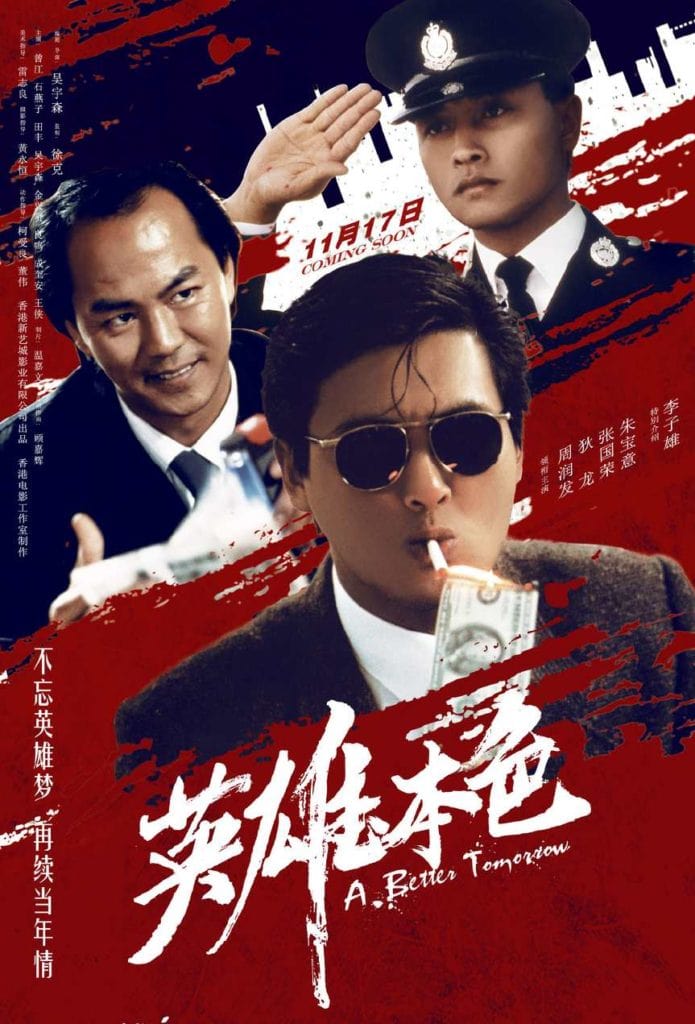
Director: John Woo
Main Actors / Actresses: Yun-Fat Chow, Lung Ti, Leslie Cheung
The film successfully gathers the conflicts between the brotherhood in the Jianghu and the brotherhood in their own lives, presenting their different setbacks, failures, confessions, and revenge.
Through these interpersonal conflicts, the film itself becomes more enjoyable through successful sensationalism. The film set off a “hero film frenzy”, which has a significantly important impact on the development of Hong Kong’s film!
A Better Tomorrow is the only one in the history of the Hong Kong film industry that gains both the title of box office champion of the year and the title of the best film of the Hong Kong Film golden statue award.
The Wedding Banquet (喜宴)
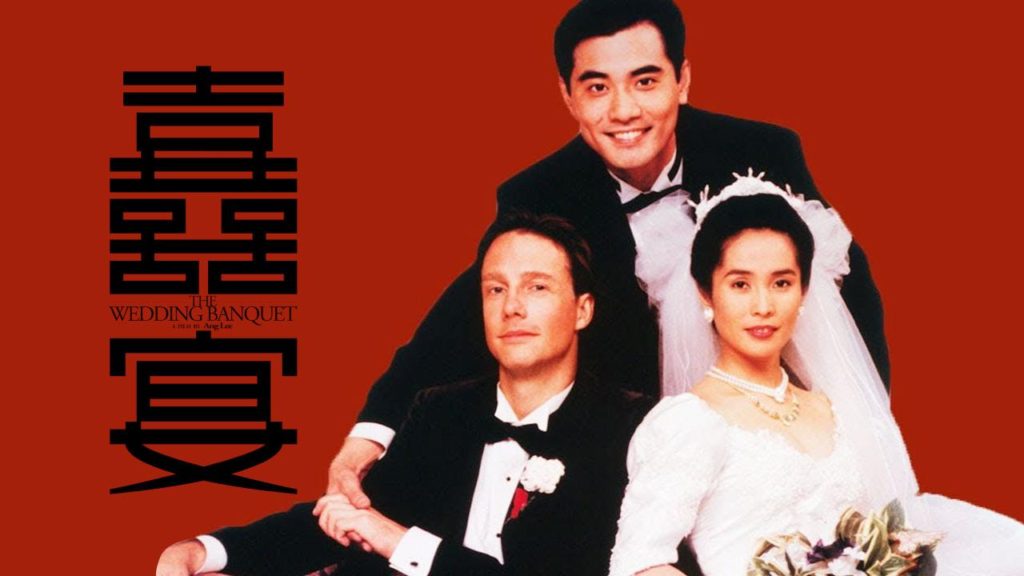
Director: Ang Lee
Main Actors / Actresses: Winston Chao, Sihung Lung, Ya-lei Kuei
When we’re talking about Chinese language films, Ang Lee is the name that can’t be missed at all. At least in my opinion, Ang Lee is the most representative Chinese film director in the modern world, the only Asian director who gain an Oscar twice in history. The Wedding Banquet probably is the start of Ang Lee’s legendary road of filming.
The wedding banquet is the work of Ang Lee in 1993. With this work, Ang Lee won the Berlin Film Golden Bear award, the best director award at the Seattle Film Festival, as well as the Golden Globe Award, and the best foreign-language film nomination at the Oscar.
In his hometown of Taiwan, the film won the Golden Horse Award for best picture, best director, and best screenwriter, and the audience voted for best work. Ang Lee has since stepped into the ranks of internationally renowned directors.
“Wedding banquet” is a celebrated name in Chinese culture, a happy ending. This film is accompanied by a set of Chinese philosophy of life which seems to be very harmonious and effective.
The Reddit discussions center around the topic of the best Chinese movies of all time
The Reddit discussions revolve around recommendations for good Chinese films across various genres:
- Recommendations for Mainland Chinese Films: In the r/TrueFilm subreddit, users recommend films such as “Ju Dou” (1990) and “Raise the Red Lantern” (1991) by Zhang Yimou, highlighting them as great period pieces set in the early 20th century.
- Chinese Films Highly Rated by Chinese People: Users discuss highly-rated Chinese films on Letterboxd, mentioning titles like “Farewell My Concubine” (1993) by Chen Kaige and “Infernal Affairs” (2002) by Andrew Lau & Alan Mak, providing insights into popular choices among Chinese audiences.
- Best Chinese Movies Ever Made: In the r/movies subreddit, users discuss the best Chinese movies ever made, suggesting titles like “In the Mood for Love,” “A Better Tomorrow,” “Election,” “Exiled,” and “Raise the Red Lantern,” showcasing a variety of genres and eras.
- Must-Watch Chinese Films: Users in the r/MovieSuggestions subreddit seek recommendations for must-watch Chinese films, with a focus on those without clichés, featuring great drama, romance, massive battle scenes, and entertaining plots.
- Chinese Historical Film Recommendations: In the r/ChineseHistory subreddit, users recommend historical Chinese films such as “The Kangxi Dynasty,” “Han Wu Da Di,” “The Great House,” and “Yongzheng Dynasty,” exploring different periods of Chinese history.
- Decent Chinese Films: In the r/China subreddit, users discuss the last decent Chinese films they’ve seen, with recommendations like “Farewell My Concubine” and comments on challenges with government involvement in media.
These discussions provide a diverse range of Chinese film recommendations, covering different genres, time periods, and cultural contexts.
